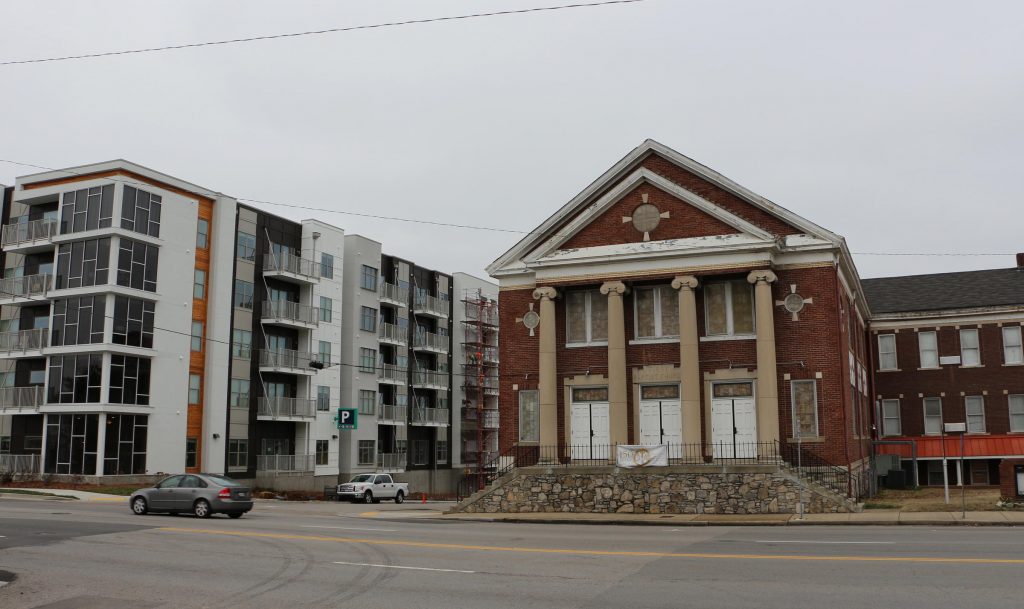Sojourners takes a good look at the increasingly secular fates of church buildings, from condominium to Wal-Mart, as urban neighborhoods become more gentrified. Congregations are responding to changing demographics in varying ways – some closing and selling, some merging, some staying close to their roots and reaching out to new communities.
In Tennessee, First Baptist, east Knoxville, is staying put, though the pastor says he is sometimes worried:
“If I think about it outside of the confines of God, I am,” [Rev. Morris Tipton Jr.] said. “Most of the black churches in this community are leaving. They are selling their churches to land developers who are turning them into restaurants and bars, and condos and apartments, and any number of things.”
He sees the change happening around his church as an invitation to new ministry:
Tipton strongly believes that a church should be part of its community. He said First Baptist Church East Nashville’s congregation is healthy, and about 75 people fill the pews every Sunday.
But he also is trying to reach the people who live next door, both those in the luxury apartments as well as families in a Section 8 housing complex behind the church.
“I’m a firm believer that heaven is not racially segregated, and so because of that I think it’s not a good thing for churches to be,” Tipton said. “I just feel led to try to bring back that whole community spirit.”
That outreach manifests as community forums, back-to-school drives, and a biweekly door-knocking campaign inviting all neighbors to attend a service. So far, only about five white people have accepted that invitation, the pastor said.
A January 2017 story on Nashville Public Radio describes the changing neighborhood:
…little has changed inside the church. But outside, the neighborhood has transformed. Luxury apartments sprouted up next door, a fancy hot yoga studio opened down the street. White professionals are moving in as land prices soar. But for the better part of a century, this neighborhood has been a community of color. And as development takes hold, the churches that for generations rooted the neighborhood, are being pushed out.
Also in Tennessee, a mosque has made the same decision. In Sojourners:
For years, the Islamic Center of Nashville has fended off offers to buy its property in the heart of the city’s now-trendy 12South neighborhood, said Rashed Fakhruddin, president of the Islamic center. The mosque moved in a couple of decades before redevelopment transformed the crime-prone neighborhood and property values shot up, which have made it hard for its members to live nearby.
“People started coming to us, asking if we would sell and offering a boatload of money. Until this day it still happens now and then, but I think most people know we’re not moving anywhere,” Fakhruddin said. “They could offer us the world, but we love our roots here.”
Other houses of worship have closed or relocated:
• In the District of Columbia, a 120-year-old church, in what was once a working class black neighborhood, has been converted to condos selling for up to $1 million.
• In Springfield, Mo., a church was razed to make way for a Walmart.
• In York, Pa., the city bought a former house of worship to use as potential event space for a nearby hotel.
• In Knoxville, Tenn., Norwood Baptist Church’s aging and dwindling congregation merged in January with a larger, thriving congregation in the suburbs.
Read the entire Sojourners story here.
Image from Nashville Public Radio story; credit Meribah Knight / WPLN

